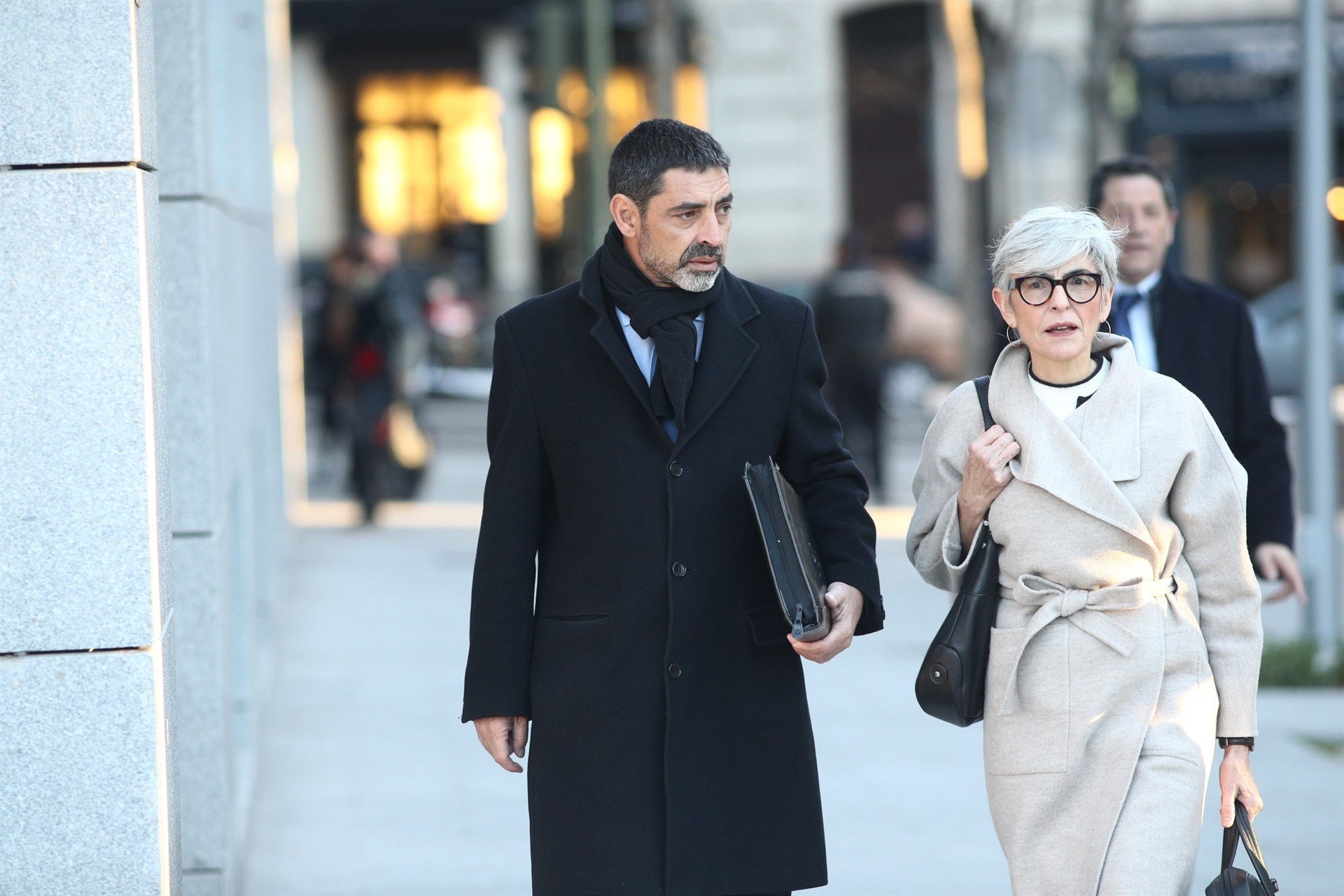The former major, or head, of the Mossos d'Esquadra (Catalan police), Josep Lluís Trapero, has told National Audience judge Carmen Lamela that he met twice, in September, with Carles Puigdemont, vice-president Oriol Junqueras and interior minister Joaquim Forn and told them that the Mossos were not part of any "political plan", that they would stay on the sidelines, legal sources have said.
Based on these meetings and the position taken by the Catalan police, Trapero's defence asked on 18th January for a series of witness statements, including the officers who were in the meetings, and the three politicians, Puigdemont, Junqueras and Forn, themselves. This request for new witnesses, it emerged today, was opposed by the public prosecution who the judge eventually sided with. Lamela said that she could not call as witnesses people under investigation by another court and didn't give any importance to the filing.
Trapero explained that in the two meetings, also attended by commissioners Ferran López, Joan Carles Molinero, Manel Castellví and Emili Quevedo, they expressed the unease felt by police leadership towards the statements, made by different politicians, that the Mossos wouldn't block the independence process. In fact, the major said that the top leadership was "bothered" by these public statements that the Mossos would enable and promote the holding of the referendum.
In the meetings, the police said that they would comply with court orders. The government told them to do what they had to do.
In this way, Trapero distanced the police strategy from the referendum during more than two hours of testimony today in Spain's National Audience court. This directly contradicts accusations from the Civil Guard, colonel Diego Pérez de los Cobos, who was in charge of the police operation on 1st October, and the public prosecution, who blame him for not having stopped the referendum and for having worked alongside the independence process.
The public prosecutor believes that Trapero hid information in his testimony on 16th October, because he didn't reveal the meetings nor their contents.
That said, the judge seems to believe Trapero. She's let him remain free without bail, even though the prosecutor had asked for her to impose bail of 50,000€ (£44,000, $61,000).
Trapero is under investigation for sedition for the events of 20th September and 1st October last year. The first day saw protests against Civil Guard searches of a number of Catalan government ministries, the second was the day of the independence referendum. He is accused of inaction, both in allowing the demonstration outside the Economy ministry and in not stopping the referendum, nor seizing ballot boxes, nor closing polling stations.

